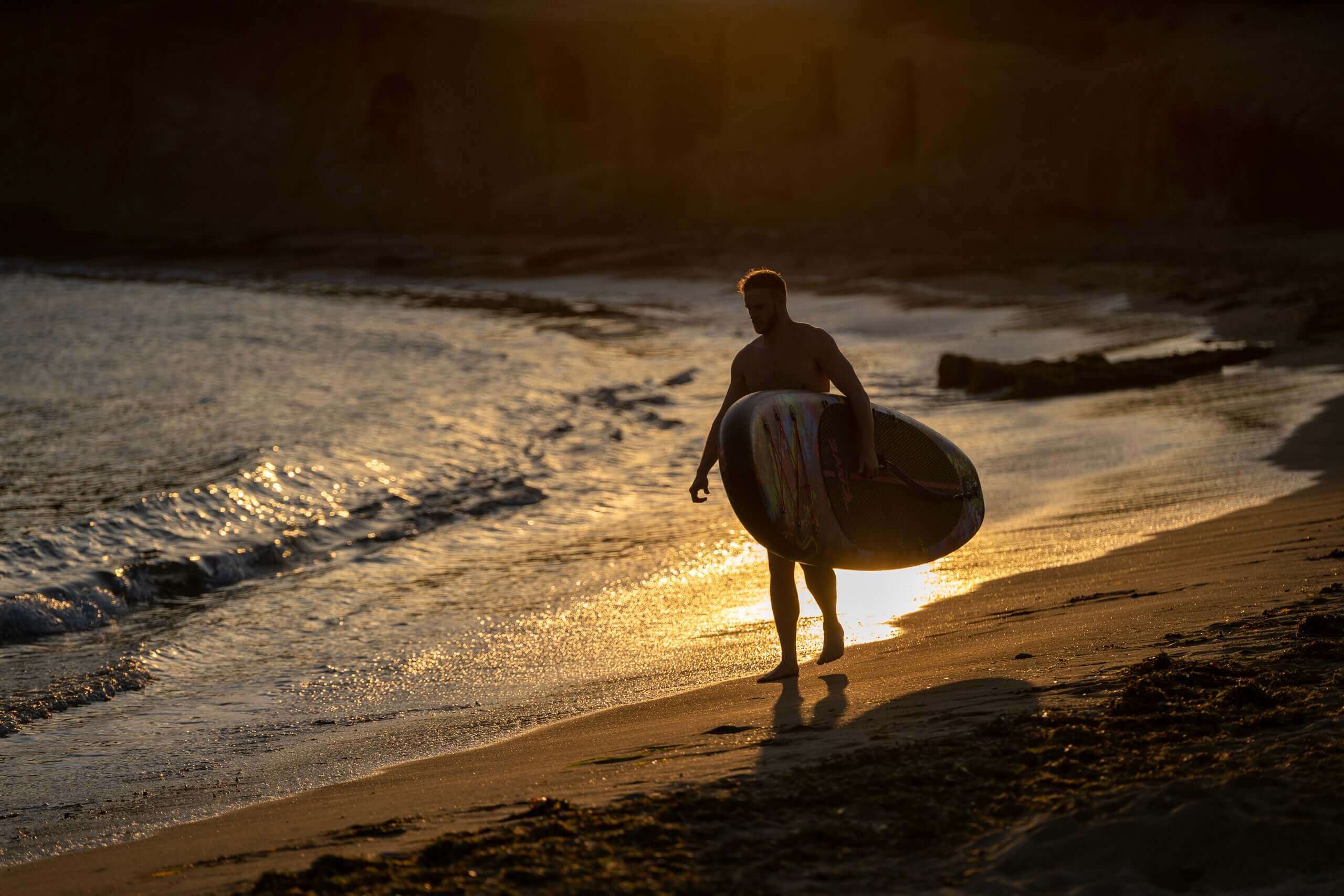Paddle boarding offers an exceptional way to explore waterways, from serene lakes to the vast ocean; it's a sport that appeals to adventure seekers and nature lovers alike, allowing you to glide across the water's surface, bask in the sun, and enjoy unparalleled views. But before you inflate your paddle board and set out for an adventure, it's important to know whether you can legally paddle board just about anywhere in the UK. This guide is here to navigate the waters of legality, ensuring your paddle boarding experience is as worry-free as it is thrilling. Let’s get started!
The Appeal of Paddle Boarding Anywhere
Imagine the freedom of taking your paddle board to any body of water, inflating it, and immediately starting your exploration - the appeal is undeniable! In any case, paddle boarding offers a unique vantage point to appreciate the beauty of our waterways, the tranquillity of nature, and the excitement of discovering new spots; it's also a versatile activity that caters to both intense workouts and relaxing moments on the water, whichever you prefer most. However, with great freedom comes the responsibility of understanding and adhering to local regulations - so what do you need to know?
Understanding Local Regulations
Before you set off on your paddle boarding adventure, it's first a good idea to familiarise yourself with the local regulations governing waterways in your area. In the UK, laws and rules may vary significantly from one location to another, and can affect where you can and can’t paddle board. For example, some areas might have restrictions based on environmental protection, the presence of private property, or safety concerns, so to ensure you’re not inadvertently breaking any laws, a little research goes a long way.
Legal Paddle Boarding Spots
While you can’t always paddle board anywhere at any time, discovering legal spots for paddle boarding can actually be part of the adventure; many regions in the UK have designated areas for water sports, offering safe and legal environments for enthusiasts to enjoy. Public lakes, rivers, and coastal areas also often welcome paddle boarders, but it's always wise to check for any specific guidelines or restrictions. For inspiration on where to head next, make sure to take a look at our guide exploring the UK's best paddle boarding locations to spark ideas for your next journey.
Private Property and Permission
When you’re eyeing a spot that seems perfect for paddle boarding, it's also important to determine whether it's on private property; accessing waterways that run through private lands without permission could get you in trouble. If you do want to paddle board on a body of water, always seek the landowner's consent before you venture onto private waters. You might be surprised - many landowners can actually be incredibly accommodating, provided that you respect their property and privacy.
Protected Areas and Nature Reserves

It’s also important to note that some protected areas and nature reserves are often off-limits to activities like paddle boarding; this is usually to preserve the environment and wildlife, as these areas are crucial for biodiversity and may have restrictions to prevent disturbance to habitats. Before you plan a paddle boarding trip in such locations, verify if they permit recreational activities. Respecting these boundaries is part of being a responsible member of the paddle boarding community.
Watercraft Regulations
You should also be aware that paddle boards are sometimes classified under watercraft regulations, which can include wearing life jackets, carrying safety equipment, and even registration. Even without regulations in place, it’s always a good idea to go into water with the right equipment; after all, safety equipment is primarily for your safety and the safety of others on the water. Checking the requirements before heading out can prevent potential fines and ensure a safe experience for everyone involved.
Responsible Paddle Boarding Practices
Being a responsible paddle boarder means more than just following legal regulations; it also involves respecting the environment, wildlife, and other people enjoying the waterways. Good waterside etiquette includes not littering, disturbing wildlife, or encroaching on other water users' space, and adopting these practices systematically ensures that our waterways remain beautiful and accessible for everyone.
Resources for Checking Regulations
Finally, staying informed about the latest regulations and guidelines is easier than ever, thanks to a wealth of online resources. Local government websites, water sports organisations, and conservation groups often provide up-to-date information on where you can paddle board legally and safely. Investing time in research before your adventure can save you from potential headaches down the line.
The Bottom Line
Ultimately, paddle boarding offers an incredible way to connect with nature, explore new territories, and enjoy the outdoors - but it’s important to understand and respect the legalities and regulations surrounding this activity, to ensure that the adventure remains enjoyable - as well as a sustainable hobby - for years to come.




